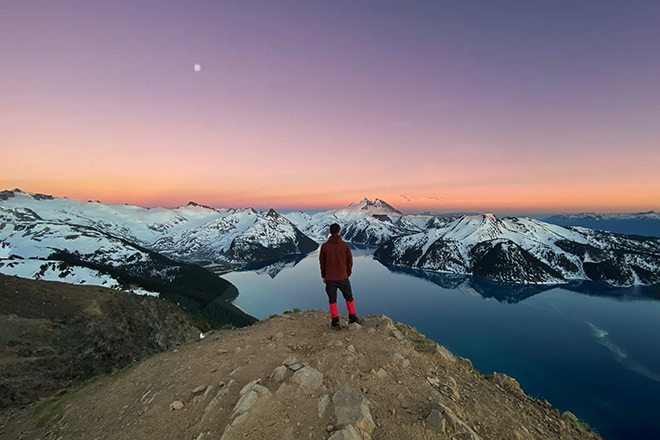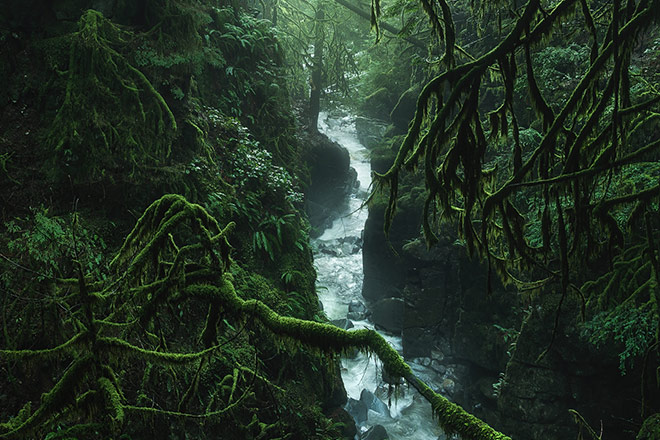Hikers raise the bar in #PoweredByWater photo contest

A look at two weekly winners, and a reminder that the contest deadline is near
Stephen Chow wished for the best, but when it materialized, it still took him by surprise. How often are you all alone atop one of Canada's most stunning (and popular) trails?
"We thought we'd try it in the evening to catch the sunset," recalls Chow of his June hike to the campground at Garibaldi Lake, and the sunset climb to Panorama Ridge overlooking the lake. "We knew it would be a little dark, but I was confident in my skills because I'd done the Ridge a bunch of times and my friends were with me.
"Once we got up there, there was like, no one there. And that's so unusual – that trail is crazy busy."
The photo Chow took – of sunset over Garibaldi Lake – was a weekly winner in BC Hydro's #PoweredByWater photo contest, which wraps up on August 8. He won a $200 Best Buy gift card for his efforts, and he's also in the running for the grand prize – a $500 Best Buy gift card – once the contest wraps up.
A student at UBC, Chow has some stiff competition, in the likes of Tristan Todd, who often seeks out terrain in remote areas of B.C. but leaned on an easy local hike for a fantastic shot of Cypress Creek in West Vancouver.
Thinking of going to Panorama Ridge? You'll need to book a free day pass through discovercamping.ca, and you'll need to be prepared for what's an arduous 28.3 km hike that's best done with an overnight camping stop at Garibaldi Lake. Camping there is so popular however, that no sites are available until September.

'It's the easiest hike with the biggest payoff'
By the time this story is published, Tristan Todd will have taken on another great adventure – a multi-day hike in the backcountry around the tallest peak in B.C., Mount Waddington at more than 4,000 metres (or 13,000 feet). For perspective, that's well over three times the elevation of Grouse Mountain.
The thing is, experience with epic hikes in the B.C. wilderness doesn't stop Todd from exploring the beauty in his own backyard. His photo of lush vegetation in a narrow section of Cypress Creek was one of the weekly winners in our #PoweredByWater photo contest.
"Honestly, of all the places I've been to, that's probably the easiest hike with the biggest payoff," says Todd, who captured the photo with his Nikon DSLR camera. "It takes, maybe 15, 20 minutes to get there on the Cypress Falls trail."
Todd is now living a dream of sorts, trying his hand as a professional photographer after quitting his restaurant job last fall. So far it has worked out well, allowing for plenty of adventure travel. and it has set him up to share his love of photography by offering courses – online, and on hikes – via tristantoddphotography.com.
Todd only discovered the outdoors after spending much of his teen years locked away inside, engaged in video games and a lot of other stuff divorced from nature. The camera got him outdoors, and now he's hooked.
"Especially in Vancouver, it's almost like people take it kind of for granted that we have all these beautiful places just literally in our backyards," he says. "Part of what I do now is trying to show people the natural beauty that's so close, and to help them appreciate it."
Did you know?
More than 90% of BC Hydro's electricity generation is produced by hydroelectric power stations, which is generally the most cost-effective, clean and reliable option in B.C. While much of the water that powers the province comes via rain, we rely extensively on water from snow melt to help supply our reservoirs for year-round electricity generation.